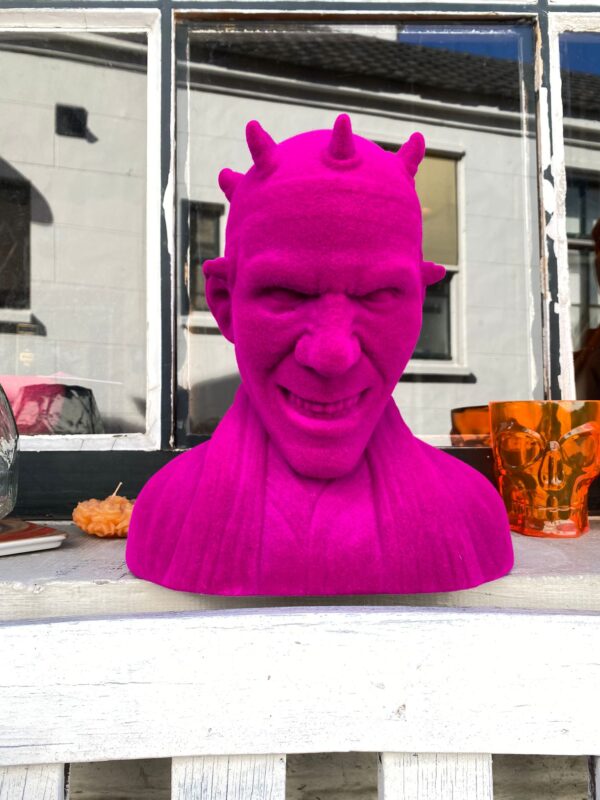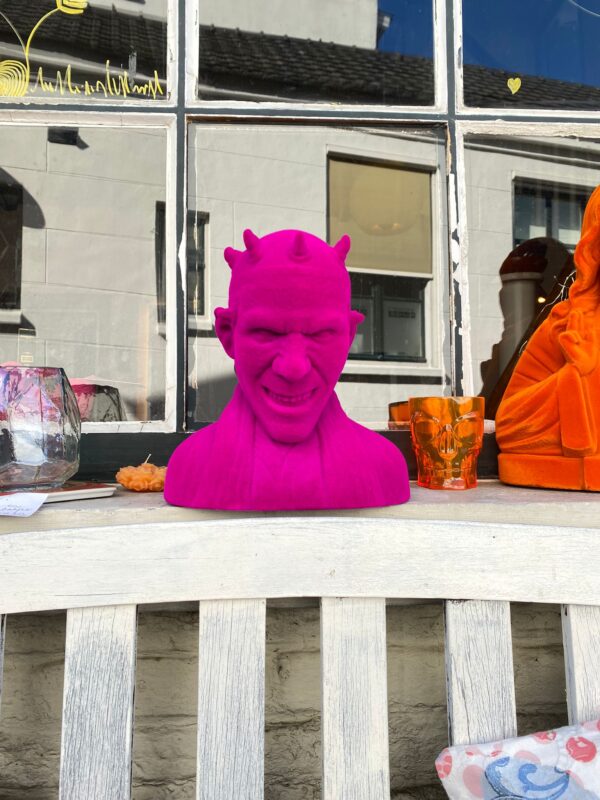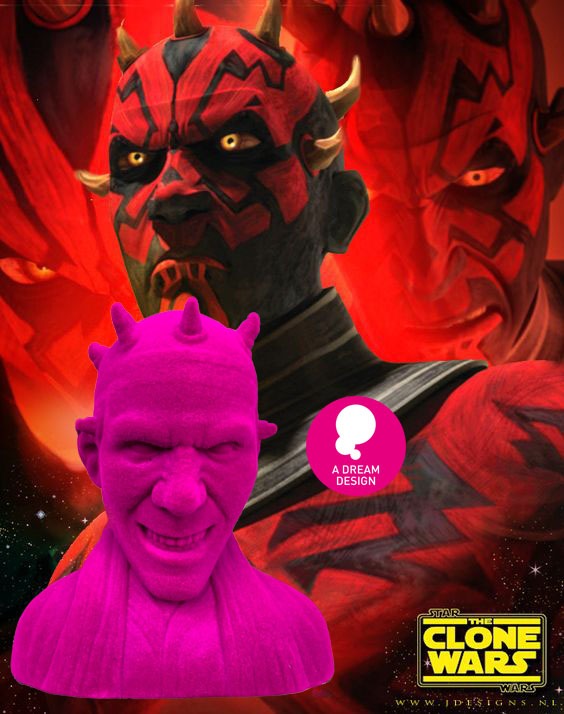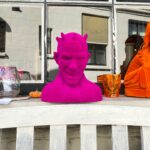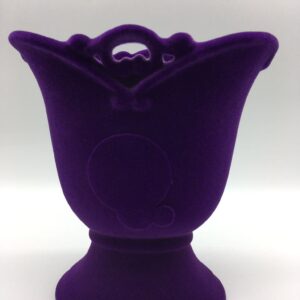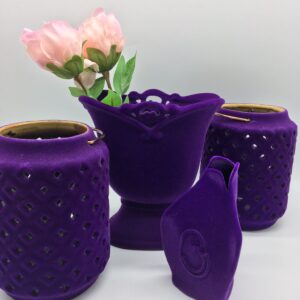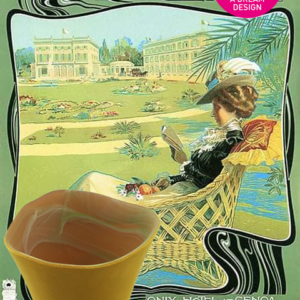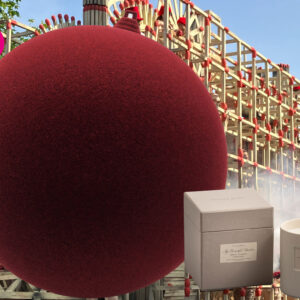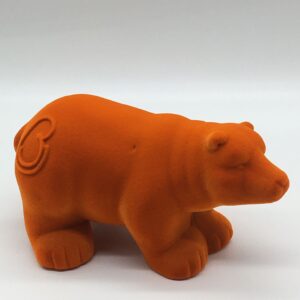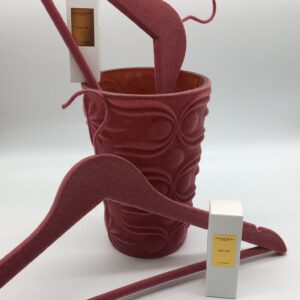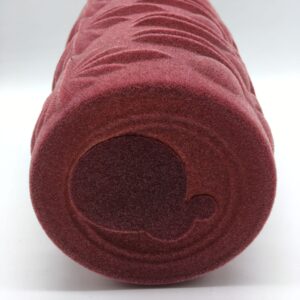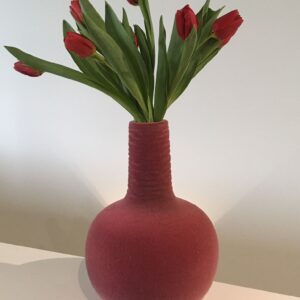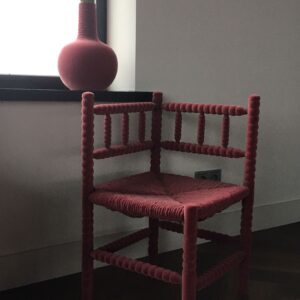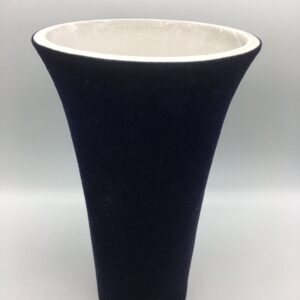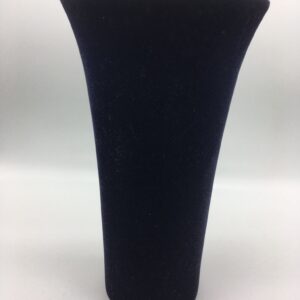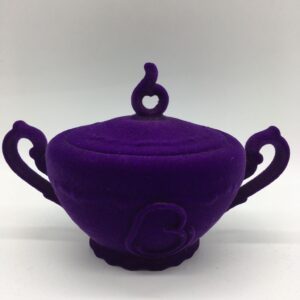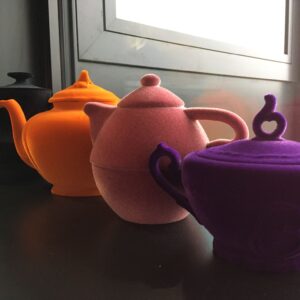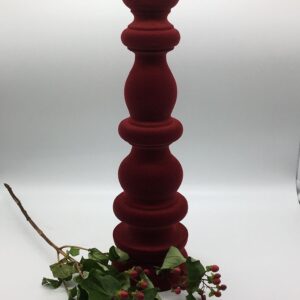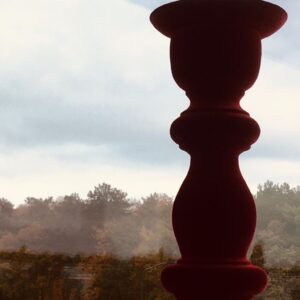Darth Maul in popart velvet pink by A Dream Design : Verkocht!!
€99.00
Darth Maul in popart velvet pink by A Dream Design
“Duel of the Fates” is arguably one of the most memorable pieces in all of the Star Wars prequel films. In this scene from 1999’s The Phantom Menace, Obi-Wan Kenobi and his Master, Qui-Gon Jinn, have their hands full with the all-powerful Sith Lord in Darth Maul, and this intense choral music heightens the amazing choreography. The song concludes when Maul separates himself from the Jedi and his Padawan, creating two separate battles as he manages to defeat Qui-Gon.
- Beschrijving
- Extra informatie
Beschrijving
Darth Maul in popart velvet pink by A Dream Design
Bijna Halloween en eigenlijk waren we dit helemaal niet van plan, maar soms gebeuren dingen zonder dat je daar direct invloed op hebt, dus zo werden we de trotse eigenaar van deze Dart Maul die zeker in ons prachtige pandje wel wat opriep bij de mensen die hem zagen.
Uniek, eigen en in een kleur die je nooit bij Darth Maul zou kiezen. Dus ultiem. Art op zijn best.
A dream Design rules in dit geval.
Nu kent iedereen de theme music van Star Wars en alle sequels wel zo’n beetje….toch zocht ik naar iets passends…
So, I’ve been listning to some Star Wars songs recently, and I have really come to like Duel of the Fates. But I have been wondering as to what the lyrics mean.
It turns out, there’s a story behind them. It started with an archaic poem written in Welsh called Cad Goddeu, or Battle of the Trees in English. The poem is about a Welsh magician who animates trees to be his army. The poem was translated into English by a man named Robert Graves.
Enter John Williams. I’m not sure why he chose that translated poem or how he stumbled across it, but he did. He chose lines 32-35 of the translated poem which read:
Under the tongue root
a fight most dread,
and another raging
behind in the head
Now obviously this is probably a loose translation, because it has been modified to rhyme, like the original poem does in Welsh. John Williams then translated this into a variety of languages, finally settling on Sanskrit, because he liked the “quality of the vowels”, as well as it’s resemblance to a religious chant. Note that John Williams arranged the translation by ear, rearranged some of the syllables, etc, so the actual original meaning is lost. Here is his pseudo-translation into Sanskrit (or rather, the pronunciation, not the Sanskrit characters):
Khara Matha Khara Rath Amah
Khara Rath Amah Yuddha Khara
Khara Syada Rath Amah Dai Ya
Khara Ki La Dan Ya
Niha Ki La Khara Rath Amah
Syada Ki La Khara Rath Amah
Khara Dan Ya Khara Rath Amah
Khara Dan Ya Khara Rath Amah
Niha Ki La Khara Rath Amah
Syada Ki La Khara Rath Amah
Khara
Khara Matha Khara Rath Amah
Khara Dan Ya Khara Rath Amah
Niha Ki La Khara Rath Amah
Syada Ki La Khara Rath Amah
Khara
Now we’re starting to get some resemblance to the modern lyrics. Because of the modifications mentioned above, this doesn’t make any grammatical sense, but a rough word-by-word transliteration into English is as follows:
Dreadful head dreadful speak give
Dreadful speak give battle dreadful
Dreadful raging speak give purify going
Dreadful like taking separate going
Loss like taking dreadful speak give
Raging like taking dreadful speak give
Dreadful separate going dreadful speak give
Dreadful separate going dreadful speak give
Loss like taking dreadful speak give
Raging like taking dreadful speak give
Dreadful
Dreadful head dreadful speak give
Dreadful separate going dreadful speak give
Loss like taking dreadful speak give
Raging like taking dreadful speak give
Dreadful
Really cheery, isn’t it? It only mentions the word “dreadful” 20+ times. Anyway, the Sanskrit pseudo-translation was then even further modified: The spelling and pronounciation was changed, several words were combined or even changed, to yeild the lyrics to the Duel of the Fates:
Korah Matah Korah Rahtahmah
Korah Rahtamah Yoodhah Korah
Korah Syahdho Rahtahmah Daanyah
Korah Keelah Daanyah
Nyohah Keelah Korah Rahtahmah
Syadho Keelah Korah Rahtahmah
Korah Daanyah Korah Rahtahmah
Korah Daanyah Korah Rahtahmah
Nyohah Keelah Korah Rahtahmah
Syadho Keelah Korah Rahtahmah
Korah
Korah Matah Korah Rahtahmah
Korah Daanyah Korah Rahtahmah
Nyohah Keelah Korah Rahtahmah
Syadho Keelah Korah Rahtahmah
Korah
So yes, technically the lyrics originated in an old Welsh poem about an army of mobile trees. However, the poem has gone through quite a journey to get here. A broad translation into English, a sketchy pseudo-translation into Sanskrit, and then even further modifications to make the words more pronouncable and aesthetic, as well as robbing it of what little original meaning still remained. So basically, it doesn’t really mean anything except for a lot of the word “dreadful”, but it’s interesting to think about where the words came from.
Darth Maul in popart velvet pink by A Dream Design
Extra informatie
| Gewicht | 1.5 kg |
|---|---|
| Afmetingen | 25 × 30 cm |

